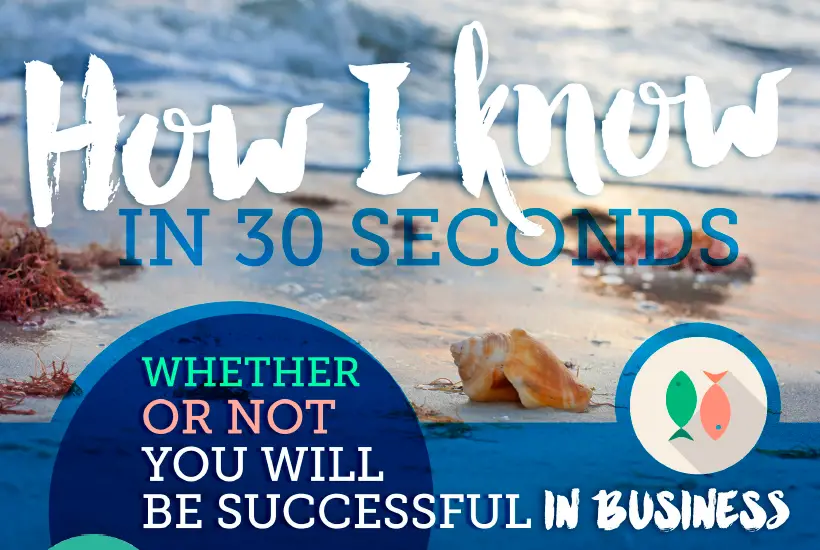
by Paula Ramm | May 6, 2016 | Home Business
When talking to a new consultant, I can generally tell right away whether or not they will be successful. With the hundreds of consultants I’ve spoken to, a clear pattern has revealed itself. When initially signing up, those that go on to be successful all have one thing in common, while all those who don’t make it have something else in common…
Do you want to know if you have what it takes to be successful in business? The download my short free ebook to find out!
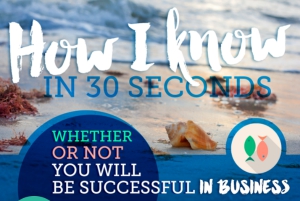
Click the image to get your free ebook!

by Paula Ramm | Jan 14, 2016 | Home Business
You’ve put your heart and soul into your direct sales company, and then the unthinkable happens…you feel let down by the very company that you’ve poured your life into. It could be any number of things: they didn’t do what they said they would do, they didn’t give you the support you desperately needed, they changed vital things in the compensation plan or manual, their rules and policies were vague then interpreted against you, there was a major miscommunication between the two of you that cost you dearly…I could go on and on. Maybe it wasn’t the company itself, but your sponsor or another consultant who let you down or did something very hurtful to you. But if you’ve been there, you know what I’m talking about, and you more than likely have a clear instance or two in your mind.
 How are you feeling now? Let down? Betrayed? Ready to quit?
How are you feeling now? Let down? Betrayed? Ready to quit?
I am here to say, “Don’t.”
Unless it was a major instance of poor company character such as outright lying or blatant deception, then you are shooting yourself in the foot to throw in the towel after investing so much into your business.
You may be livid. You may be wounded. You may not feel you have the strength to go on. But please hear me out. You will only be hurting yourself if you quit now.
Seriously…do you think you can pack up and go elsewhere and the same thing won’t happen again? Disappointment is life. It will happen again. I can almost guarantee it. Life is messy. Stuff happens. People make mistakes. The key is how you deal with it.
So what now?
1. Hit the pause button, because your feelings could be a signal of something deeper. Maybe the real issue is that you are simply burned out.
You pushed too hard, put in too many hours, and crossed personal and family boundaries. You left no margin in your life for rest and recovery. You poured everything you had into your business. So now when any issue comes up, big or small, you are more sensitive…it is easier to blame others…see others’ faults…not be able to think things through rationally. If this is the case, then you need to make radical changes in your life, priorities, and schedule, so that you can get your life back into balance.
2. Watch the friends and company you keep.
If you are discussing matters with friends and consultants who are negative, then I can guarantee that negativity will grow with a life of its own and infect everyone in the group with a deadly poison that will ruin their chances of having a happy, successful business.
You may feel that you need someone to confide in, but if that person only feeds your negativity and hurt, rather than helping you climb out of that hole, then you are asking for trouble. Surround yourself with friends and consultants who are positive and can encourage you when you are down. Return the favor. Disappointments will come, but having encouraging friends can make all the difference in whether you fizzle out or can sustain and thrive through the long haul.

3. Don’t sweat the small stuff.
I know someone who is not really getting excited and putting effort into her business because she is not wild about the stylishness of the packaging of her company’s product, even though she loves the product itself. She is killing any chances of success she might have by focusing on a minute issue. What could be a great opportunity for her is being criticized to the point of being useless as an avenue of potential financial independence.
There are so many insignificant issues that distributors can find themselves disgruntled over…how the website looks, how efficient the checkout process is, the return policy, the quality of marketing photos, the frequency of sales, the look of the newly released products, how often new products are released, etc. Again, you are only hurting yourself if you get distracted by insignificant issues such as these.
4. Remember that we are all human, and be willing to grant GRACE to others.
Upset that your customer service rep was short with you when you called in with a question? Well, have you ever had a bad day? Have you ever thought that maybe this person was having a bad day as well? She is a person of value and we may never know what she is currently going through. Why are we so prideful to think that we are always perfect and never make mistakes, and never allow others to make a single misstep? Think the best of others and their intentions. Assume the best rather than the worst. Think of them the way you’d like others to think of you when you mess up. Give grace. Is there one person that has hurt you? If it is relatively minor, then forgive and overlook. If it is not something you can overlook and is causing bitterness to fester inside you, or affecting your work relationship, then maybe you need to humbly talk with them one-on-one to get things in the open so you can get them resolved. Many times we make assumptions about people and their motives that simply are not true.
There are many ways you can feel let down by your direct sales company or those in it. Don’t be surprised when you are, because it will more than likely happen at some time in some form. Yes, there may be times when issues are serious enough to warrant getting out, but be sure you think things through carefully using discernment and wisdom rather than unreliable emotions. Feelings make great servants, but horrible masters. Don’t sabotage your own business or future; you are only hurting yourself. Be sure to keep your life in balance to prevent burn-out, surround yourself with positive influences, overlook insignificant issues, and above all, give grace.

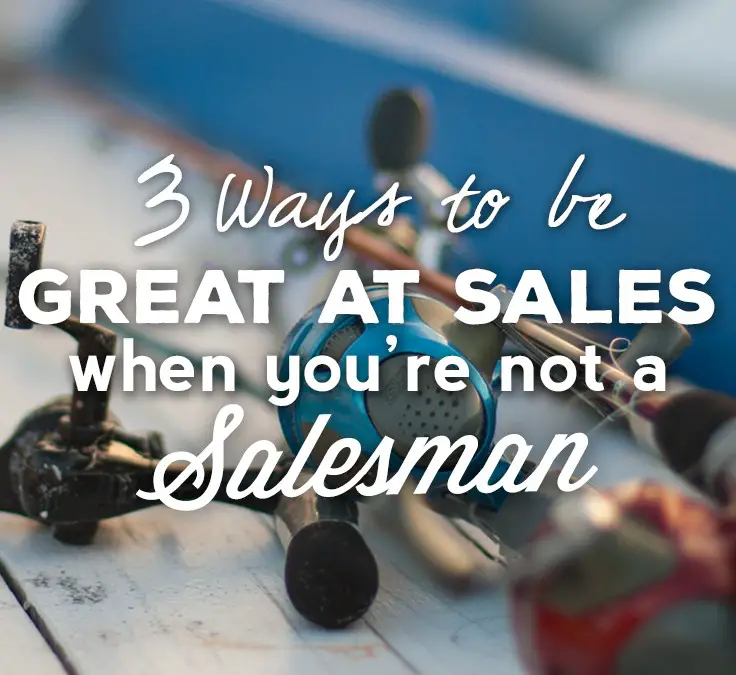
by Reagan Ramm | Jan 7, 2016 | Home Business
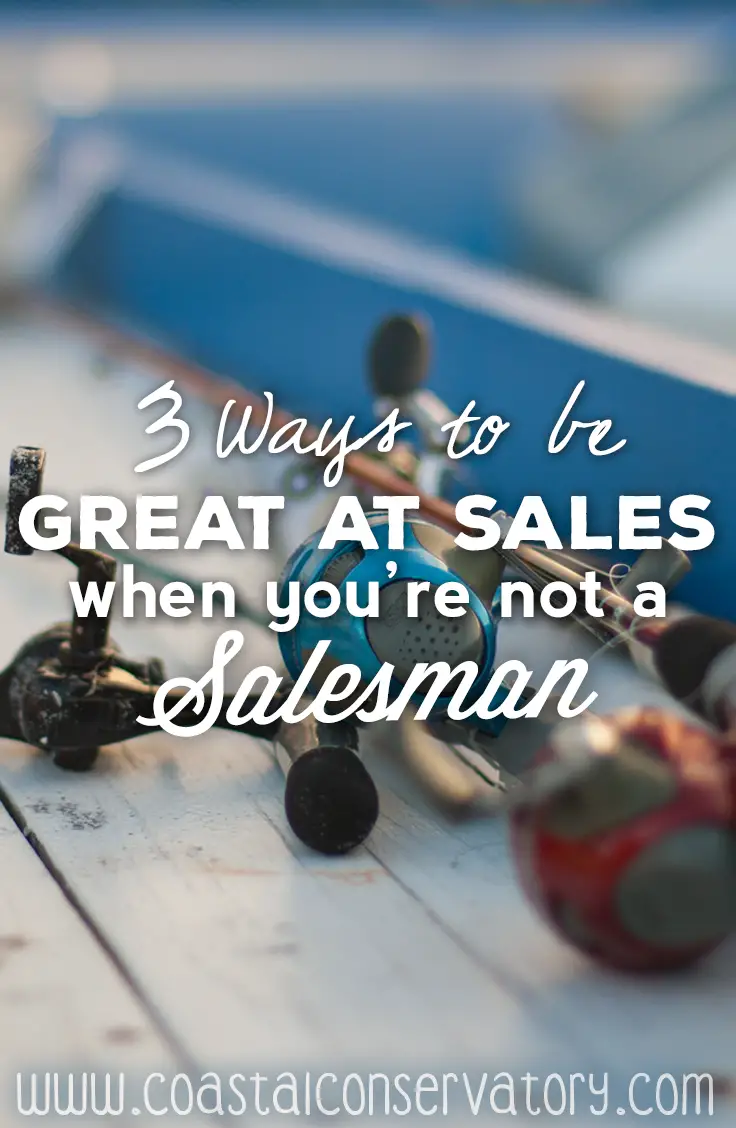
I used to be a Branch Manager for a college entrepreneurship company. This “college internship” ended up resembling a sales job rather than an opportunity to learn how to run my own business. That said, I did learn a remarkable amount about the sales world. I became good at sales, even though I am not a salesman.
Seriously, working in sales is probably one of the very last things I would like to do. I’m introverted, I’m not charismatic, and the idea of trying to sell a product to someone makes me extremely uncomfortable. My job involved A LOT of door-to-door sales, which I’m pretty sure I have a phobia of. When I played football in high school, we players had to participate in a fundraiser and go door-to-door selling coupon cards. If you didn’t sell your quota, you would be punished with some pretty intense conditioning at practice. I took running-until-feeling-like-you-would-throw-up over going door-to-door. That’s how much I hated it.
Yet here I was, just a couple years out of high school, going door-to-door, and doing well. I did so well, in fact, that in the beginning of my internship, I was in 1st place among all other branch managers in the nation when it came to total sales. How is this possible for someone who is not a salesperson?
During my internship, I learned all the best sales tactics. I learned how to “objection handle.” I learned how to “build rapport.” We were taught a “script” to use anytime a potential customer brought up an objection.
If he said he couldn’t afford it, we were to say that, “You’d be surprised how inexpensive a painting crew of college kids can be. Plus, I’m offering a free estimate. It couldn’t hurt just to know how much it would cost.”
If he said he is a “do-it-your-self-kinda-guy,” we were taught to point out how long it can take to paint an entire house by yourself. If you painted only on weekends, it could take you half the summer by yourself.
If he said he didn’t want inexperienced college kids painting his house, we were to point out how all our painters were trained and certified by Sherwin Williams (this, however, turned out to be a lie).
If he said his house didn’t need painted, we were to point to some paint chipping from the house, or say we noticed the paint looked a little faded if we couldn’t find any chips.
You get the idea. We branch managers were taught every objection a customer could potentially come up with, and how to handle it. Not all of these objection-handling tactics were deceptive or manipulative, but as you have probably gathered, a lot were. I knew all the slick sales moves that salesmen get a bad reputation for. However, these tactics don’t work if you’re looking to run a moral and successful business for the long haul.
Of course, for someone who is a natural salesman, these under-handed strategies may work. After all, they wouldn’t still be in use if they didn’t. But if you want to run a business that is both successful and moral, and you’re not a salesman, we have to abandon the idea of trying to get someone to buy.
Well now what? How can you get someone to buy without trying to get them to buy? Should you just cross your fingers and hope you get lucky? Not all. The answer is simple: seek the good of your customer.
Huh? That’s right. The Golden Rule is the answer. Do unto others as you would have them do unto you.
1. Truly care about your potential customer; don’t be nice and seem interested in them just to get a sale.
Don’t be fake. People are valuable, and not things to be used. Develop a relationship with them. Really do care. If you do, then you will know if your product truly is the best thing for them. If so, then you can recommend it with confidence, knowing how much it will benefit them. Even if they never make a purchase, you will have made a friend and made a difference in someone’s life. And that is what is truly valuable.
If you have a great product that you really believe will help your potential customer, then let them know about it! Can you think of any products that you love and use every day? Now think if you didn’t have it? Wouldn’t you want someone to tell you about how great it is so you can get it and it can help you?
For example, I love the writing tool Scrivener. It allows me to keep all of my thoughts, drafts, outlines, pictures, research, anything related to my writing project, in one simple organized place. I can easily find anything I need related to my latest article or novel, and also easy sort. It’s a fantastic tool that every writer should have. I’m so glad I found out about it from a friend (who, as it so happens, wasn’t trying to sell it to me).
Be a friend to your customers. No, this doesn’t mean you hang out with them or call them up for a friendly chat on weekends, but like a friend, you look out for their best interest. If your product is great, simply tell them what makes it great and how it can help them, like you would a friend.
Of course, this is contingent on your product. Do you have a great product? If not, you’re not going to have much success selling it. How are you going to be able to convince someone they should buy something that won’t help them? If you don’t have a great product, you should probably get out of your business now and not waste any more time. Instead, find a product you do love, that can help people, and that you can be passionate about. It will sell itself. Not sure if you have a great product?
If someone was living in a house without a roof, you wouldn’t need to be a good salesman to tell them about the value of roofs. You could easily point out how a roof would protect them from the elements, keeps out pests, and grants them privacy from those annoying hang-gliding neighbors. You could go on and on about how great roofs are without knowing anything about sales. Why? Because the product—a roof—is such a must-have with a great many benefits to the owner!
2. Focus on the benefits to them rather than the actual product and its features.
How is it in the best interest of your customer to have your product?
Notice, in the above example I did not simply list the features of a roof. I did not say, “It’s angled and comes to a point at the top which is a very nice feature because it will allow rain to run off.” No, instead, I pointed out how this product would specifically help this particular person. This particular potential customer has been annoyed by the presence of hang-gliding neighbors peering into their roofless home. A roof would definitely help solve this particular problem of theirs.
Do NOT just talk about the FEATURES of your product, but put your main focus on the BENEFITS to your potential customer! Yes, your potential customer may agree that a roof sounds like a great thing, but what everyone wants to know is what that means for THEM. It’s a very subtle but crucial difference. A good rule of thumb is to focus 20% on the features of product, and a whopping 80% on the benefits to the customer.
So for our roofless customer, for example, only 20% of what you say should be things like, “Our company has been in business for 20 years!” or “Our asphalt is the strongest in the industry! or “We offer the lowest prices in the tri-state area!” The majority of what you say should be things like, ” You will stay super warm and dry during downpours!” or “You will save tons of money over the long-run by not having to replace your furnishings every month!” or “You will achieve peace and privacy from the Smiths and their hanglider!”
Likewise, if you want to be good at sales, even if you’re not a salesman, you need to show what makes your must-have product a must-have for your particular customer, and to do that, you have to truly believe in your product, and care about your customers. If you have that kind of product, then you are well on your way being successful.
3. Share your personal testimony about how the product truly helped you.
Share what things were like for you before you found the product, and how things have changed for the better for you now. You can also share testimonials from others if you have the time or are writing copy, but by far the biggest impact will be your own story, as your potential customer knows you and trusts you. They don’t want to know as much about how it’s helped others, as they want to know how it’s actually helped YOU. Then assure them that if your product worked for you, then it will absolutely work for them! And guarantee that if you can, so there is no risk to for them to give it try!
Think about it. Why do companies to get celebrities to advertise their products? Of course one big reason is that people want to be like these people, and believe using the products they use will help them bridge the gap. However, another reason is that people feel like they know these celebrities. They see these people all the time on TV, that rightly or wrongly, they have the sense that they have come to know them, and believe if the product is good enough for these people they know, it must be for them.
And there you have it! Three ways to be successful in sales even if you aren’t a salesman. In a nutshell, this all boils down to legitimately caring about others, and being passionate about how your product helps them. From there, all you have to do is honestly communicate these two things to your potential customers. Let us know how these strategies work for you!
If you want some more tips on how to start your own successful business, then we highly recommend checking out this free 10 day marketing boot camp!

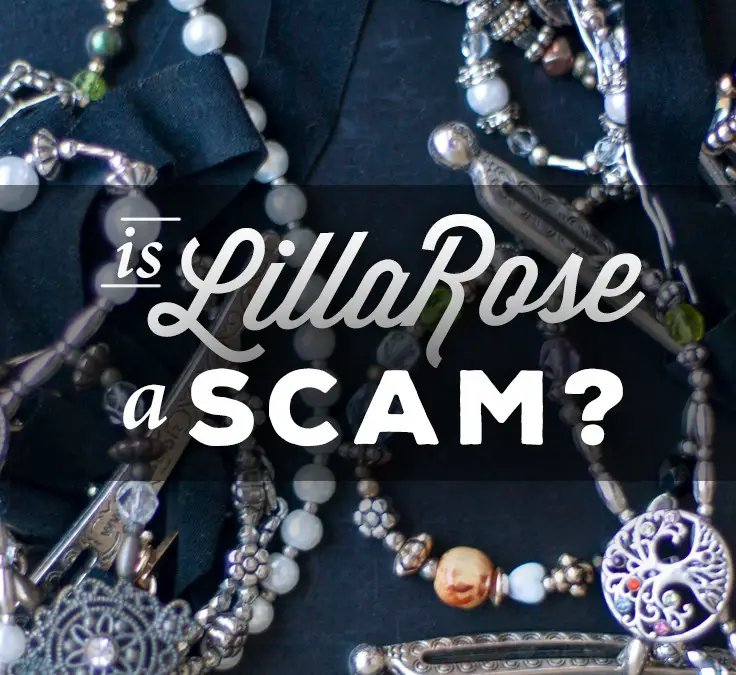
by Reagan Ramm | Nov 19, 2015 | Home Business
Many people are skeptical of direct sales organizations.  They associate them with pyramid schemes or get-rich-quick-scams. Such skepticism is warranted as there are a lot of sketchy companies out there, but is Lilla Rose among them? Is Lilla Rose a scam?
They associate them with pyramid schemes or get-rich-quick-scams. Such skepticism is warranted as there are a lot of sketchy companies out there, but is Lilla Rose among them? Is Lilla Rose a scam?
There are essentially 6 “red flags” which signal that a direct sales company is a scam:
Red flag #1: High Enrollment Cost
If a direct sales company has a high enrollment fee, this is a sign that it could resemble a pyramid scheme, even if it is legal.
A high enrollment cost signals that there is a good chance the majority of your income will be made merely by getting others to sign-up, rather than through sales of a quality product to others not in the organization.
This is not healthy, and also a sign that once enrolled, you will be pressured into having to constantly bug your family, friends, and even strangers in the grocery store checkout line to get more and more people to enroll to sustain the pyramid.
When we look at Lilla Rose, however, we find a very low enrollment cost.
It is only $89 for the enrollment kit, and for that payment you receive over $300.00 worth of product, a free website, and an array of marketing supplies. There is a lot of value given in return for signing up.
Lilla Rose does not make a dime on the enrollment kits, nor do the consultants. This is a very good sign, and a great indication that it may not be a scam.
Lilla Rose also offers an optional add-on inventory kit at the time of enrollment, called the Fast Start Kit.
This benefit could be confusing when using the six red flags to evaluate a company for signs of a scam. It is a bigger investment, at $500, but it is not an enrollment kit, as one still has to enroll with the Party or Show kit. It is an inventory package, with over $1100 worth of product, so is an amazing deal on product, to help a consultant get off to a great start with inventory to sell at 55% profit!
And yes, their sponsor does make a nice $200 bonus on that Fast Start kit, but it is from sales of product, and not from the enrollment kit itself. This is an important distinction.
Red flag #2: You Only Make Income Through Enrolling Others
Similarly, even if the enrollment cost is not exorbitant, you will want to stay away from network marketing or MLM companies where your income is primarily generated through signing up others.
You should be able to make a good profit by selling product alone, without having to enroll a single person. Enrolling others should be icing on the cake; a nice bonus if you are wanting to make a higher income (and many times quite a bit higher!) but certainly not necessary for making a decent profit.
For Lilla Rose, this is exactly the case.
It is entirely possible to make a good income from selling product alone.
A consultant can sell at a craft show or at a home or Facebook party and make immediate profit and a good return on their investment of time.
Watch out if a network marketing company offers a piddly percentage of sales for your commission.
Obviously, it would be very difficult to make a good profit if you are only paid 5-10% on your sales.
With Lilla Rose, you are paid a hefty 30-45% on sales, with some opportunities to earn over 50%! This is a great margin for anyone in retail sales, let alone a direct sales company!
Of course, you are only one person and can only be in one place at a time, and only have so many hours in your day. Two people can reach more than one, so signing up more people to sell would definitely benefit you, and is recommended, but certainly not a requirement to make an income. This is a sign of a healthy direct sales company.
Red flag #3: No Outside Customers
If you are mostly going to be selling your product to yourself or other distributors in a particular model, you may want to reconsider. There must be third party customers buying the product for the direct sales company to be sound.
Yeah, it’s great if you think your grandma’s cookies are delicious, but if no one else does outside your family, it’s going to be hard to sell them. They’re not a viable product.
Lilla Rose, on the other hand, is viable, as the vast majority of sales comes from third party customers, and many repeat customers at that. People not enrolled as consultants with Lilla Rose love the products! This is a very good indicator that Lilla Rose is not a scam, but a legitimate business venture.
Red flag #4: High Quotas
If there is a high quota or a minimum amount that you are required to purchase yourself, beware, as you could lose a lot of money. If the company thinks their consultants have to be the ones making most of the purchases, odds are, the product or company isn’t that great.
Against conventional wisdom, you decide to start a cookie business with your grandma’s cookie recipe. You get your family members to be part of the business, and require them to buy 50 boxes a month, let’s say, since you need to cover costs and you don’t have enough customers.
This is BAD!
All the income is artificial because you are your only customers! If you want to make a real income, there can’t be a high quota or minimum amount that you have to buy yourself. More than likely, you’ll lose money.
Lilla Rose, on the other hand, has NO quotas.
There is no minimum to receive your commission or discount on your personal sales or to remain active. In order to earn bonuses off your team, however, there is a $200 minimum, but this is consistent with a sales-based business model rather than an enrollment-based pyramid model, and is actually a very good sign of a sound company.
Red flag #5: The Compensation Plan is Unrealistic
Closely check out the compensation plan. Is the pay-out realistic? Is it sustainable?
For example, if the enrollment fee is $300, and you make $100, not only on each person you enroll, but also for each person your team enrolls, where is that commission coming from? A company will not last long at that rate.
Lilla Rose has a very logical compensation plan based on percentages of sales, which is generous, but completely sustainable for years to come.
Consultants have the ability to earn a casual part-time income or a nice full-time income, based on their time, effort, creativity, and ingenuity.
Red flag #6: Product Is Not Unique and/or Overpriced
Beware of direct sales companies selling over-priced and unoriginal products. If the product is something you could get for less at Walmart, it will be very difficult to convince customers that they should buy from you.
Lilla Rose is not only extremely unique, but the Lilla Rose products are also very affordable!
And there you have it. Lilla Rose passes all 6 scam tests, so Lilla Rose is NOT a scam!
To learn more about signs of a healthy network marketing company, read Is MLM Really a Legitimate Business Model?
For more info on the Lilla Rose business opportunity, please read A Remarkable Opportunity.
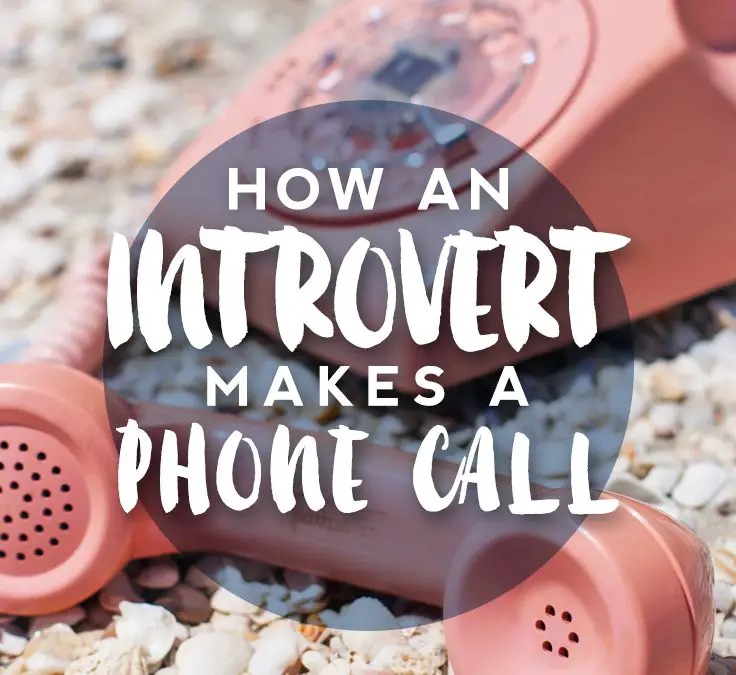
by Paula Ramm | Aug 6, 2015 | Home Business
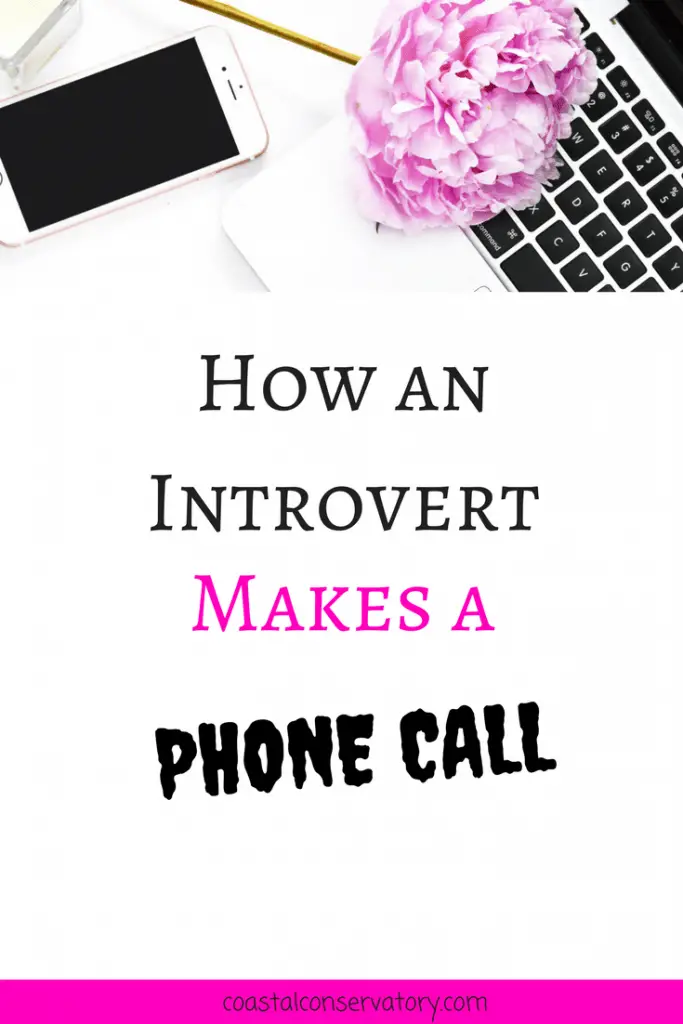
Humanity has been teleconversing for the last 139 years. What, pray tell, is the big deal about the humble phone call? It’s a simple 2-step process:
1. Dial number
2. Talk
Quite easy, is it not? Well, maybe for those who are extroverts. However, if you are an introvert, this process becomes much more complex. What could be an expedient 2-step process becomes a 21-step monstrosity of a nightmare.
This is how an introvert makes a phone call:
1. Think about what he or she is going to say
Just picking up the phone and dialing would lead to disaster! To avoid awkward silences and stuttering, the introvert must spend time, much more time than the actual length of the envisioned phone call, to decide what he or she is going to say. This includes writing a script or talking points on paper.
2. Consider what the other person may say and how she’d respond in return
Inevitably, thinking about what he or she will say leads to pondering just how the other person may respond, and what they might say to what was painstakingly scripted before hand. This of course leads to simulating in the mind just how to respond to how the other person could respond, and so on and so forth.
3. Get a drink of water
All of this mental exertion results in the need for refreshment. And she certainly wants to be sure she has a clear voice. A drink of water is a must!
4. Go to the bathroom
Of course, upon getting a drink, the introvert finds they are much thirstier than they originally realized, and so down several glasses before returning to their desk…only to realize they now need to take a bathroom break.
5. Reply to an email
Arriving back at their desk, the introvert now discovers they have an extremely, mildly, not-so-much-but-kind-of, urgent email that must be responded to!
6. Rehearse what she will say if she gets voicemail
Nothing strikes more terror in an introvert’s heart than having to leave a message on someone’s voicemail, for her mistakes and fumbles to be digitally recorded for what possibly could be forever. Of course, at the same time, nothing brings greater relief than not having to talk to a real person.
7. Read a book to the kids
Twenty minutes later, the children want to read a book. The introvert acquiesces. After all, what kind of parent would they be if they turned down this request?

8. Make sure everything is quiet
Children satisfied, it is now time to make this phone call! But all must be quiet, from running appliances, TV, music, or the construction project next door.
9. Make arrangements to ensure that everyone will actually stay quiet
Then the dreadful realization hits that the children could start up their ruckus after the phone call has begun. This. Can. NOT. Happen! Shewing them into the great outdoors, spontaneous nap-time, or good old-fashioned duct tape are all viable options.
10. Get a notepad for jotting down notes
“Wait, what was it I had decided to say after spending all that time thinking about it?” The introvert realizes that it would be smart to get a notepad to jot down some notes. This will also ensure that nothing the introvert wants to say during the phone call will be forgotten.
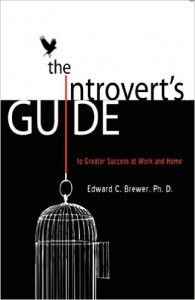
11. Get a snack
“Well, done!” the introvert thinks to herself upon completion of the notes. “I deserve a reward, and I need a snack! Once more to the kitchen we go!”
12. Get another drink of water
Without fail, eating a snack will work up a thirst. More water is in order!
13. Go to the bathroom again
Nature will probably call once the phone call begins so better make a preemptive strike!
14. Find a place to call alone without distractions
All being quiet is not enough. Our introvert must now find a locale free of all visual and olfactory distractions. “Ah, this blank wall will do nicely!”
15. Check Facebook
It then occurs to the introvert that it has been many seconds since they last checked Facebook. Better check it just to make sure nothing urgent has come up rendering a phone call extraneous.
“Nope, nothing has come up. That’s…good…”
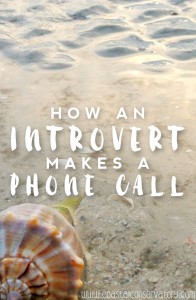
16. Take deep breaths
“Okay!”
*Deep breath*
“This is it!”
*Deep breath*
“Time to make a phone call!”
*Deep breath*
17. Reread message or listen again to the voicemail from the other person making sure she really did ask that she give her a call
With a surge of anxious hope, the introvert realizes they should reread the email or listen to the voicemail again from the other person just to make absolutely certain they really are supposed to call them. No need to make an unnecessary phone call! That would be the worst.
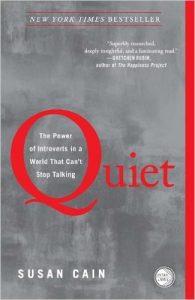
18. Add her contact info into your iphone
Yup, still supposed to call…but it is here that our introvert realizes they have yet to add this person to their contacts. “Better do that now so I know it’s them when they call in the future…”
19. Pray
–
Because it’s always good to have God on your side.
20. Write a blog post about how an introvert makes phone calls
The introvert then comes to understand just how difficult it is for her to make a phone call, and decides to write a blog post detailing this difficult and delicate process.
21. Realize with relief that she is out of time and puts it on her to-do list for tomorrow
With a great sense of satisfaction, a tremendous weight lifts off of the introvert as she realizes she no longer has any time to make a phone call that day anyway, and she can put it off until tomorrow.
It’s been a good day.
Did you see yourself in this post? You’ll definitely want to check out this one too then: How an Introvert Gets a Haircut:

This post may contain Affiliate Links. Thank you for your support!
Linked up at:
Favorite Things Friday
The Modest Mom
A Mama’s Story
What Joy Is Mine
–
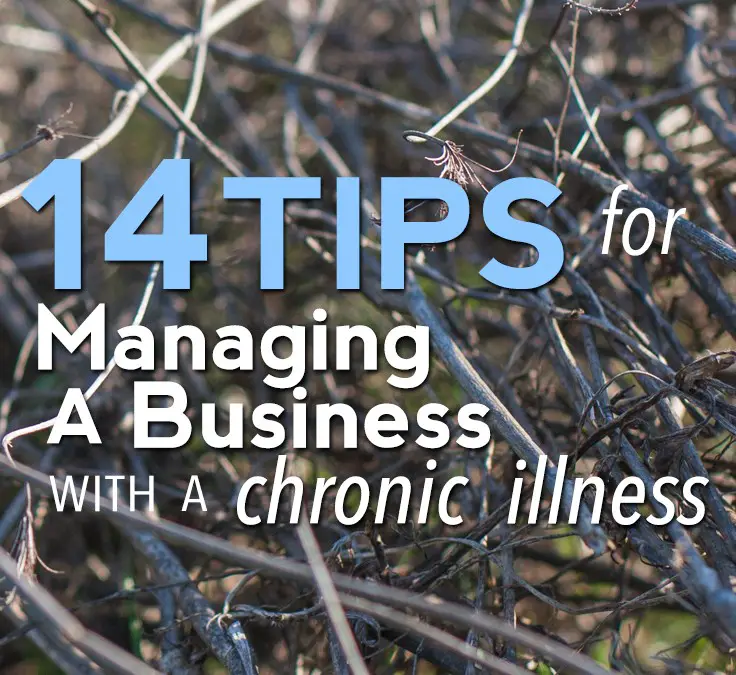
by Paula Ramm | Jun 4, 2015 | Home Business
If you have a chronic illness, managing a business probably 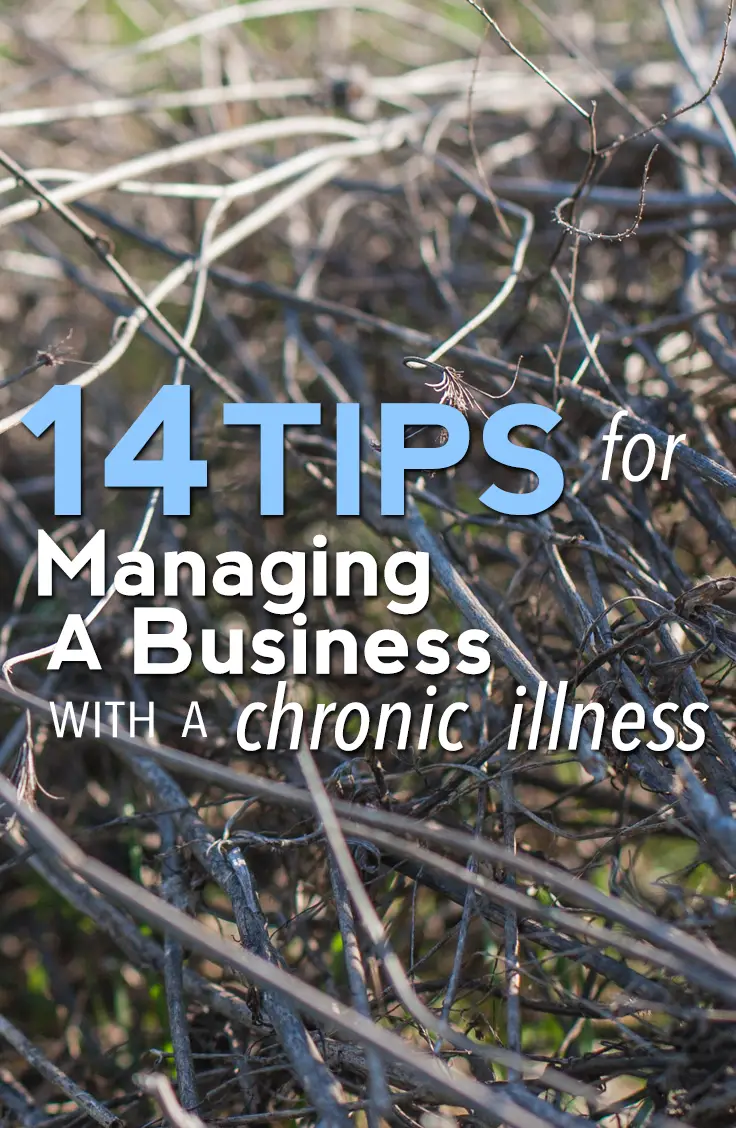 sounds like the last thing you want to do. After all, managing a business takes a lot of energy, which is something you don’t have if you are chronically ill. However, a new phenomenon is starting to emerge. More and more people who are chronically ill and cannot leave their home are starting and running very successful businesses. There are some who are achieving success in business without even leaving their bed!
sounds like the last thing you want to do. After all, managing a business takes a lot of energy, which is something you don’t have if you are chronically ill. However, a new phenomenon is starting to emerge. More and more people who are chronically ill and cannot leave their home are starting and running very successful businesses. There are some who are achieving success in business without even leaving their bed!
Not too long ago, I had a chronic illness. I know what it’s like to have no energy and to always feel completely overwhelmed. The amazing thing is, starting a business was the final step in regaining energy and overcoming my illness!
While it is certainly not easy, here are some tips that helped me manage a business with a chronic illness. Please know that I am not a doctor, however, and these tips are just what I found helpful for myself.
1. Pace Yourself
Don’t try to do everything on your to-do list in one day. If you try to do everything at once, you’ll set yourself up for frustration and disappointment. Realize your limitations, and just work a little bit at a time every day. Slow and steady wins the race.
“Success is the sum of small efforts – repeated day in and day out,” Robert Collier
2. Get your rest
While this may sound intuitive, it’s been my experience that this is more difficult than it sounds. When exactly are you supposed to find the time to rest?
I recently looked over my old medical history records and found that I had been advised by my doctor to get more rest. The doctor even made a note that I had looked “leery” after she had given me this recommendation. I had three young children at home, and my husband was gone at work all day. When was I supposed to rest, exactly?
Getting more rest had just become one more uncompleted task on my to-do list, and ironically, the prescription of getting more rest just added to my stress and anxiety.
So get your rest when you can, but don’t beat yourself up if you’re not getting as much as you should be, either. Don’t let what is supposed to help you, end up harming you more. Just do the best you can!
3. Be humble enough to accept help when someone offers
It’s easy to feel bad about accepting help from others. It feels like you’re putting people out, or saying you’re incapable of taking care of things on your own. We’ve bought into the false ideal of “rugged individualism,” and that we shouldn’t want or receive help from others.
But we are supposed to help each other and bear one another’s burdens. It’s good for others to help you, and this season of life you are in won’t last forever. There will be a time when you will be able to give back to others…if they also have the humility to let you help them. Also, sometimes the help itself isn’t that helpful, but just the knowledge that someone cared enough to offer.
4. Eat healthfully
When you’re feeling poorly, it’s tempting to just grab what is quick and easy, even if it isn’t healthy, but that will just backfire. You’ll end up losing more time in the end from making yourself feel worse and delaying your recovery. You need to eat well to let your body heal itself.
5. Light and moderate exercise
If you over do it, it will set you back and make you worse. Do a minimum to moderate amount that won’t wear you out and set you back a couple days, even if it’s just a walk around the block. Don’t feel like you need to jump into it with a run or a heavy exercise video; that will just make things worse. The key is to do a light amount of exercise, in moderation. You can work up to doing more over time as you get healthier.
6. Get sunshine every day
Contrary to common belief, the sun is not your enemy! It is life-giving and health-boosting in so many ways…so long as you don’t overdo it and fry yourself. In fact, there is even such a thing called “Seasonal Affective Disorder” or “SAD” which usually occurs in winter when there is less sunlight. A couple symptoms are decreased energy and depression.
Get sunshine everyday if you can, as it helps keep your vitamin D levels up, and boosts your immunity, among many other benefits.
Living in Ohio where it is frequently cloudy, I sometimes had to resort to an LED blue light to mimic the light of the sun that I was missing.
7. Educate yourself
Most modern medicine has no answers for many of the chronic illnesses out there. You have to be your own best advocate for your health, because doctors won’t do it for you. If you can find an integrative or holistic doctor, that is great, but even so, be sure to educate yourself.
One book that really helped me with Chronic Fatigue Syndrome was From Fatigued to Fantastic.
8. Don’t forget music!
Music is a big mood booster. Putting on your favorite upbeat music can do wonders for boosting your energy levels. It puts you in a better mood, and a better mood actually will boost your immunity.
9. Choose a business you can get excited about
Don’t pick one just because your friend or family member is doing it. Pick a business that requires some creative thought on how to market it or grow the business and personalize it. Pick a business that makes you excited, and this will boost your mood, energy, and health.
10. Make sure you keep a healthy work/family balance
You may find you love your business so much that you neglect your family, kids, or home. Make sure not to let the fun of the business take over your life. Keep a balance.
11. Take every thought captive
Paul tells us in 2 Corinthians 10:5 that we are to take every thought captive to the obedience of Christ. This means banishing pessimism and negativity, which are not part of a joyous life God wants for us.
Remember that your current situation won’t last forever. Back when I had my chronic illness, I thought that was the way my life would always be, but things changed.
Keep your mind focused on God and His kingdom all throughout the day. Scheduling a quiet time, while certainly helpful, can just become one more thing on your to-do list which causes stress. Maybe you don’t have time for a quiet time. You certainly don’t have time for more stress. However, being ill or busy does not prevent you from keeping God always in the front of your mind. Take your mind off yourself and your limitations and focus on God. Run away from self-pity!
12. Practice gratitude
Many chronically ill people are depressed, and the common advice given to those who are suffering is to be more joyful. Well, the reality is you can’t actually force yourself to be more joyful. You can’t just flip a switch. However, while you can’t make yourself more joyful, you CAN be more thankful, and practice gratitude. You can certainly write down or meditate on all the things you are thankful for every day, and give thanks to God for His abundant generosity.
And, by practicing gratitude and being thankful, you will find that a wonderful side-effect is joy! It’s hard not to be joyful when you are constantly focused on the many blessings of God. “Choosing Gratitude” by Nancy Leigh DeMoss and “One Thousand Gifts” by Ann Voskamp are both excellent resources for helping you develop a spirit of thanksgiving.
13. Always be looking for how you can be a blessing to others.
Even though you are chronically ill and confined to your house, you can still help others. By seeking to help others, you gain more energy and improve your mood. Maybe it’s just writing a letter or sending a kind email. When you have a business, you find that there are a multitude of other ways you can bless others as well.
Helping others gives you a purpose which will energize you and give you new life.
14. Refuse to feel sorry for yourself!
The very last thing you want to do is languish in bed feeling sorry for yourself. This will only harm your health, and make you feel worse. Self-pity is a downward spiral which won’t do you, or anyone else, any good. Reject it at all costs. Refuse to feel bad for yourself.
Instead, do whatever you can to take your thoughts captive, practice gratitude, and bless others.
Linked up on:
Hope In Every Season







 They associate them with
They associate them with 






 sounds like the last thing you want to do. After all, managing a business takes a lot of energy, which is something you don’t have if you are chronically ill. However, a new phenomenon is starting to emerge. More and more people who are chronically ill and cannot leave their home are starting and running very successful businesses. There are some who are achieving success in
sounds like the last thing you want to do. After all, managing a business takes a lot of energy, which is something you don’t have if you are chronically ill. However, a new phenomenon is starting to emerge. More and more people who are chronically ill and cannot leave their home are starting and running very successful businesses. There are some who are achieving success in